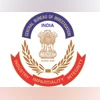A special CBI court has acquitted a deputy manager of the Indian Trade Promotion Organisation (ITPO) arrested by the CBI four years ago over accusations of taking bribe to book stall space during a fest, noting that the agency failed to prove "acceptance of bribe".
The CBI alleged that ITPO deputy manager Akshay Singh counted the phenolphthalein-treated notes received during its trap operation.
During the raid, Singh's hands were washed in a solution of sodium carbonate and water which turned pink, indicating that he had touched the notes. This had resulted in his arrest.
The defence clinched the acquittal by citing the transcript of a conversation recorded clandestinely by the CBI between Singh and the complainant which showed that both had shared a 'beedi' and were "mingling" with each other on the day the trap took place.
Singh was arrested in February 17, 2020 for allegedly manipulating allocation of stall shops at the Aahar Fest scheduled in March that year.
Also Read
The defence lawyers argued that it is quite possible that during the said period of proximity, Singh and the bribe-giver, who was also the complainant, may have also shaken hands with each other, resulting in the transfer of phenolphthalein powder from the hands of the complainant to Singh's hands.
"This explanation furnished by the defence can be said to be probable on the preponderance of probabilities," Special Judge Sanjeev Aggarwal noted.
The judge said in cases of bribery under Section 7 of the Prevention of Corruption Act, the prosecution has to prove the demand, acceptance and recovery of the bribe money on the day of the trap.
"Here in the case under discussion, the prosecution has failed to prove the acceptance of illegal gratification, which in turn has been defined as any gratification whatever other than the legal remuneration," he said.
He said the prosecution had proved the demand of undue advantage but could not prove the acceptance. The presumption is not triggered or does not come into play for the benefit of the prosecution, he added.
"The prosecution has further failed to prove the recovery of illegal gratification money from the possession of the accused," he said.
"Since the yardstick which is to be achieved by the prosecution in a criminal trial is probabilistic in nature i.e. the prosecution should prove its case against an accused beyond reasonable doubt i.e. the probabilities of the prosecution case or probative force of its case as a whole, or weigh thereof as a whole should be beyond any sort of reasonable doubt against the accused, which the prosecution has failed to achieve in the present case," he said.
(Only the headline and picture of this report may have been reworked by the Business Standard staff; the rest of the content is auto-generated from a syndicated feed.)

)
